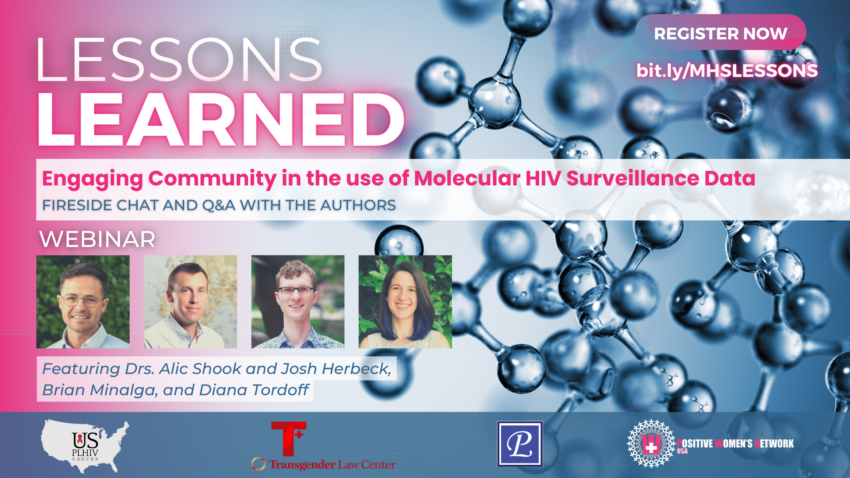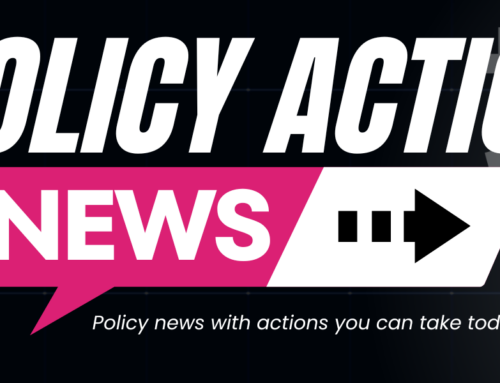Press Contact:
Positive Women’s Network-USA
Victoria Siciliano, Communications Director
347-553-5174
victoria@pwn-usa.org
**FOR IMMEDIATE RELEASE**
RESEARCHERS HALT SCIENTIFIC STUDY OVER ETHICS CONCERNS AROUND USE OF MOLECULAR HIV SURVEILLANCE DATA
HIV advocacy organizations to host fireside chat with authors
14 July, 2022–A group of researchers (Diana M. Tordoff, Brian Minalga, Alfredo Trejo, Alic Shook, Roxanne P. Kerani, Joshua T. Herbeck) recently published “Lessons Learned from Community Engagement Regarding Phylodynamic Research with Molecular HIV Surveillance Data,” a paper discussing the questions they wrestled with while using data sourced from Molecular HIV Surveillance and their decision to not publish, stop employing tactics that ignore important questions of ethics, and listen to the communities affected by these methods.
People living with HIV and their allies have been concerned about Molecular HIV Surveillance for years due to a lack of informed consent, lack of consistent protections for sensitive data, and criminalization within the context of stigma, structural racism, and medical mistrust. “I think this paper, and our choice to pause publication of this set of results, is an important part of a necessary conversation about how MHS is currently working in the U.S,” said Joshua Herbeck.
The authors will be discussing the factors that weighed into their decision to pause their research, key lessons learned from community concerns about MHS, and recommendations to the scientific community for more ethical HIV research in a virtual fireside chat event hosted by a coalition of HIV advocacy organizations.
Lessons Learned: Engaging Community in the Use of Molecular HIV Surveillance Data | Fireside Chat With the Authors.
Featuring Drs. Alic Shook and Josh Herbeck, Brian Minalga, and Diana Tordoff
When: Thursday, July 21st, 2022 | 4pm ET/3pm CT/2pm MT/1pm PT
Register here: bit.ly/MHSLESSONS

Press is invited to attend, and a Q&A session will immediately follow the discussion.
Additional quotes:
Diana Tordoff: “Through our conversations with HIV advocates and community-based HIV care providers, it became clear that many of the concerns related to the public health use of MHS data also apply to research… I think that some researchers are well positioned to facilitate increased dialogue about MHS that meaningfully includes people living with HIV and conduct research that examines these issues, promotes transparency, and empowers communities of PLHIV to have a say in why, how, and when MHS data are used.“
Brian Minalga: “The lessons learned through this experience should be considered a model not only for anyone involved in MHS, but also anyone working in the interests of community-centered public health, bodily autonomy, health justice frameworks.”
This event is being hosted by Positive Women’s Network – USA, Legacy Project, US People Living with HIV Caucus, member networks of the Caucus, and the Transgender Law Center/Positively Trans, and will be streamed live to various social media platforms belonging to these groups.
###



